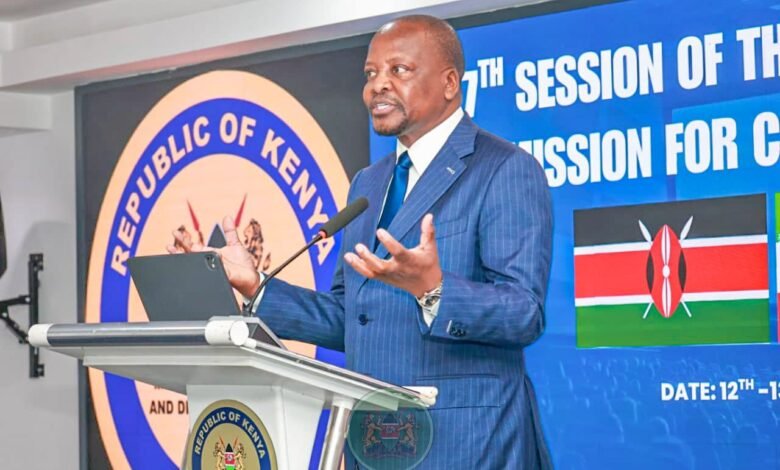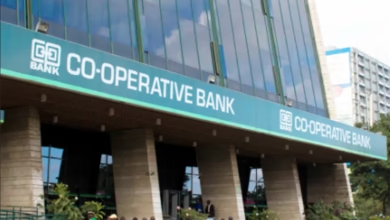
Kenya and Iran have agreed to form a joint committee that will work to remove trade barriers within 60 days, paving the way for the lifting of a ban on Kenyan tea exports to the Middle Eastern nation.
The agreement was reached during the 7th Session of the Kenya–Iran Joint Commission for Cooperation (JCC) held in Nairobi, co-chaired by Prime Cabinet Secretary Musalia Mudavadi and Iran’s Minister of Agriculture, Dr. Gholamreza Nouri Ghezalcheh.
The ban was triggered by an alleged criminal trade malpractice involving a Kenyan firm.
“Before the unfortunate incidence which resulted to the suspension of tea exports to the Republic of Iran, the country was one of the top importers of Kenyan tea. Tea exports grew from 3.2 metric tons in 2020 to a record high 13 metric tons in 2024, with corresponding values of USD 5 million in 2020 and USD 33 million in 2024.” noted the Prime CS.
“This growth was achieved despite a price cap of USD 2 per kilogram for Kenyan tea which is of premium grade compared with Indian and Sri Lankan teas capped at USD 4.5 per kilogram. The Government of Kenya looks forward to lifting of the ban so that the export of Kenyan tea to Iran may resume.” added Mudavadi.
Agriculture and Livestock Development Cabinet Secretary Mutahi Kagwe said both governments had resolved to introduce stringent regulations to safeguard the integrity of Kenyan tea exports.
“Kenya’s tea sector is one of our largest foreign exchange earners, and we must protect it from unscrupulous traders who damage our reputation,” he said.
Also Read: Kenyan tea faces new hurdle over sanctions on Iran
The embargo has dealt heavy financial blows to farmers and exporters.
The newly formed joint committee will craft a framework to restore confidence, enforce quality standards, and resume exports before the end of the 60-day timeline.
The JCC provided an opportunity for the two countries to take stock of the deepened partnership and forge new pathways in emerging areas such as climate-smart agriculture, manufacturing, transport and infrastructure, education and training, Customs-to-Customs cooperation and renewable energy among many others.
“Through the past sessions of the JCC, we have established frameworks in areas such as trade, agriculture, health, education, science and technology, energy, and cultural cooperation. This JCC marks not only the continuation of the long-standing and cordial relationship between our two countries, but also a renewed opportunity to chart a more pragmatic, ambitious and results-oriented agenda for mutual posterity.” said Mudavadi.
Mudavadai also the Cabinet Secretary for Foreign and Diaspora Affairs said Kenya continues to position itself as the gateway to the East African region and the rest of Africa as well as a hub for trade and commerce, innovation, logistics and diplomacy.
He welcomed the growing interest from Iranian businesses and institutions in the Kenyan market, and likewise encouraged Kenyan entrepreneurs to explore the vast opportunities that exist in Iran’s dynamic and resilient economy.
“We must deepen our trade and investment ties for inclusive economic growth and shared prosperity. This JCC provides an ideal platform for structured dialogue, policy coordination, and joint programming between our two countries.” he said.






**mind vault**
mind vault is a premium cognitive support formula created for adults 45+. It’s thoughtfully designed to help maintain clear thinking
Hi, Neat post. There’s an issue together with your site in web explorer, would check this… IE nonetheless is the marketplace leader and a huge part of other people will miss your great writing because of this problem.
Great – I should certainly pronounce, impressed with your site. I had no trouble navigating through all tabs and related info ended up being truly easy to do to access. I recently found what I hoped for before you know it in the least. Reasonably unusual. Is likely to appreciate it for those who add forums or anything, site theme . a tones way for your client to communicate. Excellent task.
I likewise think hence, perfectly pent post! .
I would like to thnkx for the efforts you have put in writing this blog. I am hoping the same high-grade blog post from you in the upcoming as well. In fact your creative writing abilities has inspired me to get my own blog now. Really the blogging is spreading its wings quickly. Your write up is a good example of it.
I have been exploring for a little for any high quality articles or blog posts on this kind of space . Exploring in Yahoo I at last stumbled upon this website. Studying this info So i?¦m glad to express that I have an incredibly good uncanny feeling I found out just what I needed. I such a lot without a doubt will make sure to do not forget this web site and provides it a glance on a constant basis.
Dead indited written content, Really enjoyed studying.
Hey! I just wanted to ask if you ever have any problems with hackers? My last blog (wordpress) was hacked and I ended up losing months of hard work due to no data backup. Do you have any solutions to stop hackers?
Very interesting info !Perfect just what I was looking for!